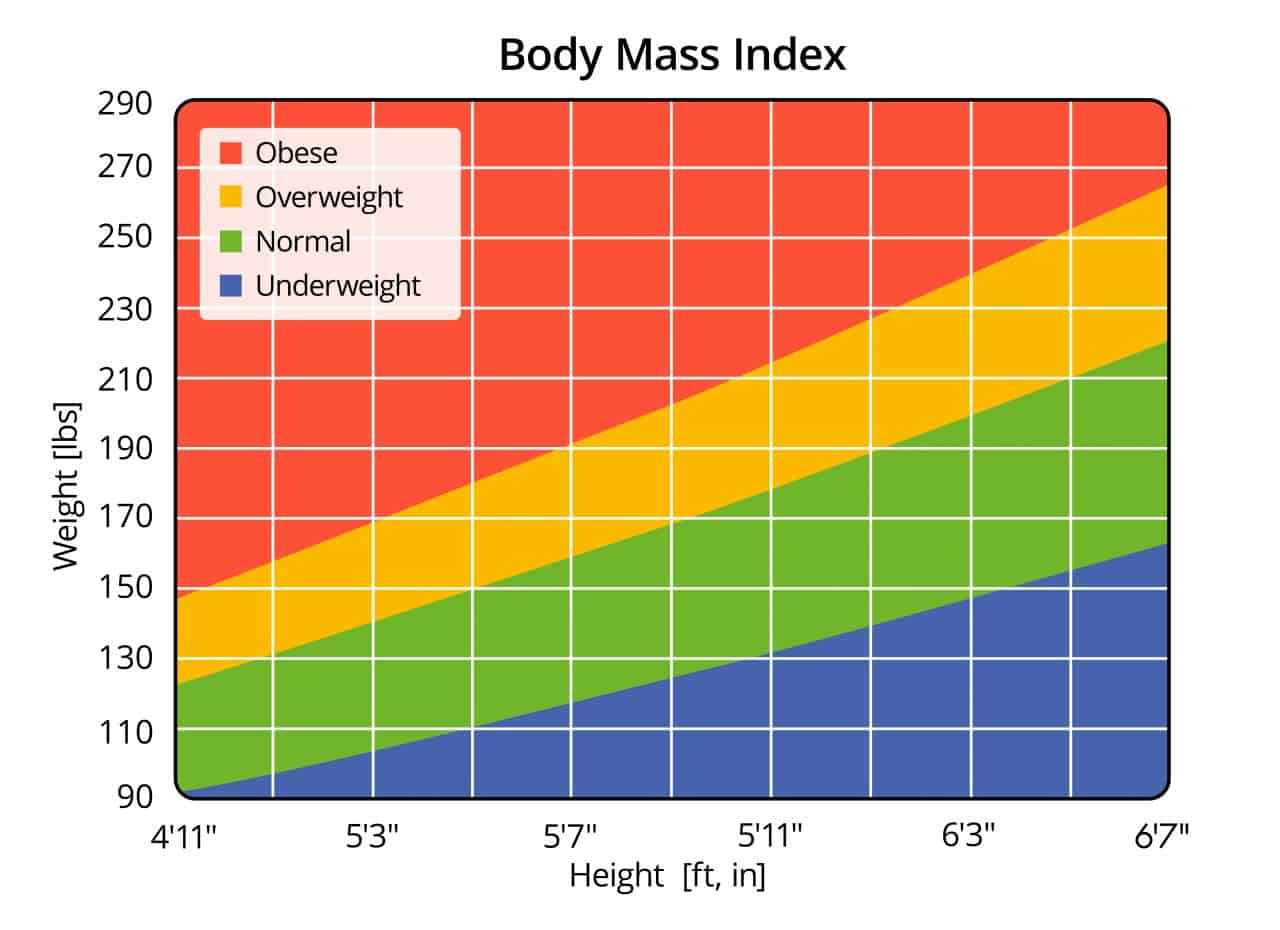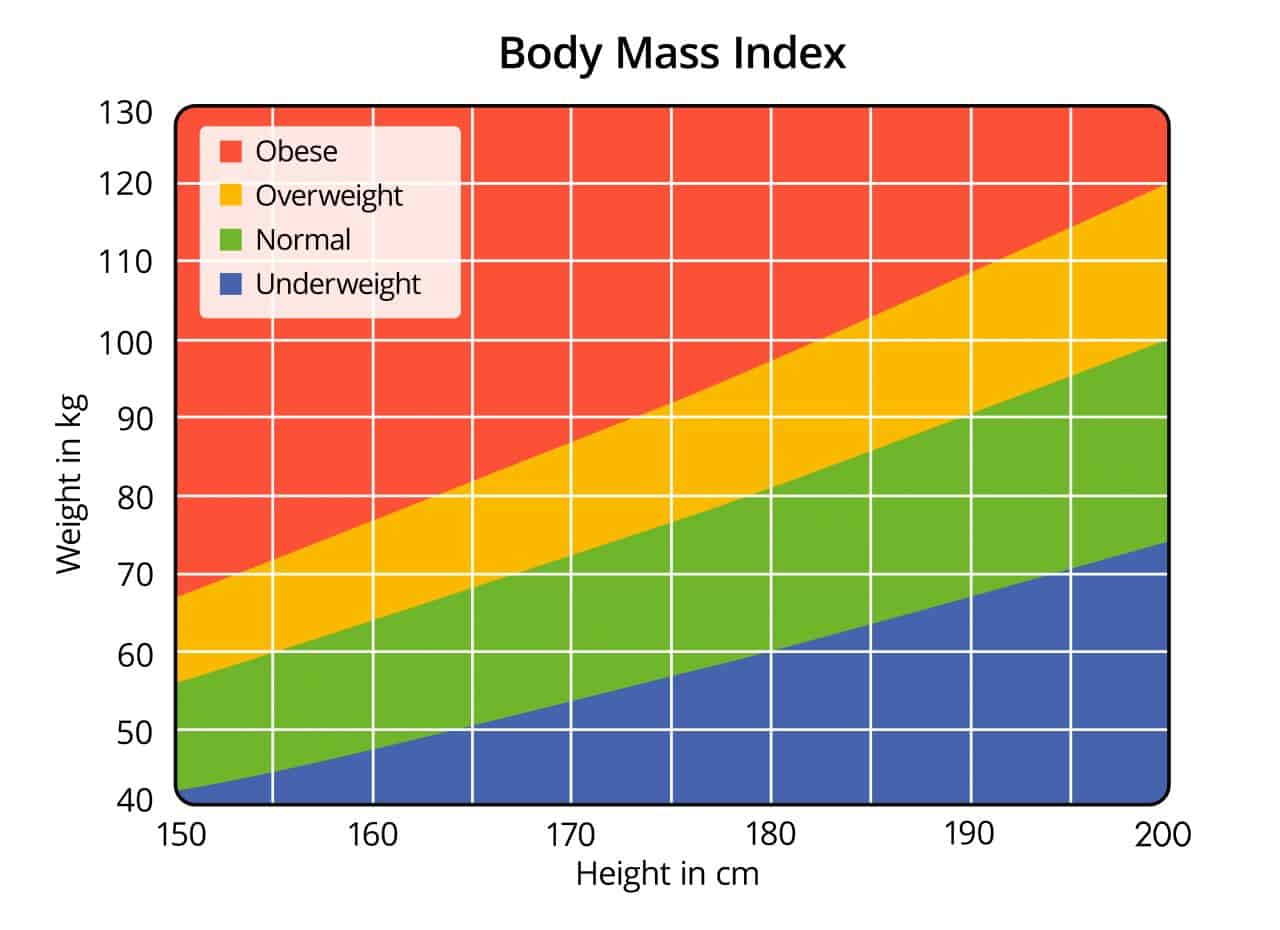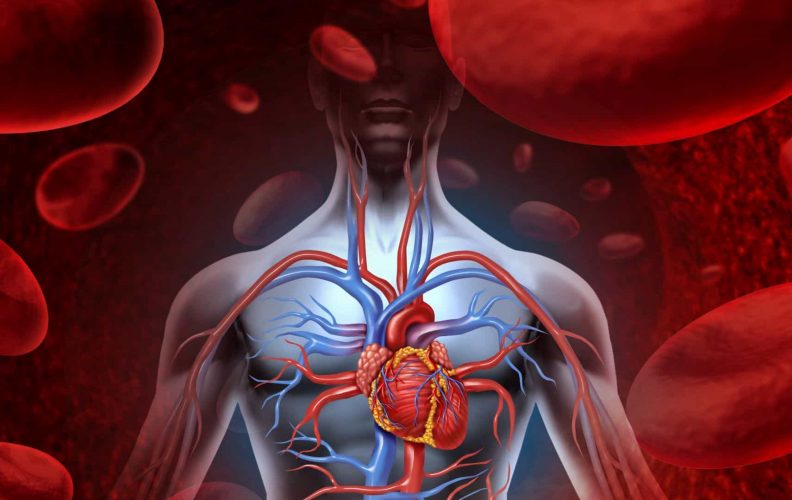Body Mass Index (BMI): Overview, Calculation & How to Improve
Disclosure: We use affiliate links and may receive a small commission on purchases.
 Body Mass Index (BMI): Overview, Calculation & How to Improve
thefitbay.com
Body Mass Index (BMI): Overview, Calculation & How to Improve
thefitbay.com
BMI (Body Mass Index) is a widespread diagnostical method which is used to determine a person’s weight status based on his or her height. BMI gives you a number, which can then be compared to the recommended values for a given weight. Based on this comparison, it can be easily determined if the weight of a given person is optimal or if the person is underweight, overweight, or even obese.
A worrying fact is that more than two-thirds of adults in the US are considered to be overweight or obese (1), with obesity being a proven risk factor connected to many different kinds of disease. Even despite these and other horrible statistics, the number of obese people is still rising. And another alarming fact is that obesity and high BMI values are more and more common among adolescent children.
Normal BMI is one of the basic principles of a holistic approach to health. Reducing weight back to optimal numbers will enable the body to regenerate and restore itself to its natural state. This page will help you to calculate your own BMI and will give you valuable information and options to help you optimize your weight.
BMI Calculation
Basically, you have four options for how to figure out your BMI:
- Determine the index value in the calculator below.
- Calculate the index manually based on the BMI Formula.
- Determine the index value using the BMI Chart.
- Use a scale that will calculate BMI for you.
BMI Calculator
Calculate your BMI value by inputting the required data and by pressing “Calculate”. The calculated value will be automatically compared to the individual levels in the BMI Table, which was put together according to the WHO. (2)BMI Table
| BMI | STATUS |
|---|---|
| Below 18.5 | Underweight |
| 18.5–24.9 | Normal weight |
| 25.0–29.9 | Pre-obesity |
| 30.0–34.9 | Obesity class I |
| 35.0–39.9 | Obesity class II |
| Above 40 | Obesity class III |
BMI Ranges
-
Underweight
Based on the BMI Table, underweight corresponds to people who have an index value of 18.5 or lower.
-
Normal weight
Healthy index values are within the 18.5 – 24.9 range. If your body is currently within this range, there is a good possibility that your body is not being burdened by its own weight. But be careful! Even optimal results are not a guarantee that everything is alright. BMI may not exactly reflect your current health and is only one of the few basic principles of Holistic Health.
-
Overweight
Index values between 25 and 29.9 are classified as pre-obese, or overweight. Given that athletes and bodybuilders have a lot of muscle mass (not fat), this state can in certain cases be relatively allowable. If this is not the case, however, consider options for BMI optimization.
-
Obesity
Obesity concerns people who have an index value of 30 or higher. Values above 30 are already classified as obesity, and values above 40 are considered extreme obesity. Find out if obesity is a disease or not and if it is possible to optimize your BMI.
BMI Formula
In connection to the used measuring units, there are two commonly used formulas. Below are two options for how to calculate BMI: (3)
-
Imperial Formula
BMI = (W / H2) * 703
Where W is the weight in pounds and H is the height in inches.
-
Metric Formula
BMI = W / H2
Where W is the weight in kilograms and H is the height in meters.
Based on these two options you can also calculate your BMI on your own calculator.
BMI Accuracy
From the mentioned BMI Formulas, it follows that the BMI calculations are accurate. But its interpretations may not be so accurate. The main reasons why the informational value of the Body Mass Index is limited are:
- BMI does not take the person’s fat into consideration.
- BMI does not take the waist circumference into consideration.
- BMI does not always take sex and age into consideration.
- BMI can vary between ethnic groups.
- BMI is more inaccurate for excessively tall or short people.
The mentioned limitations show that the Body Mass Index must be taken with discretion and that common sense must be used as well. But for most readers, the provided calculator and calculation methods are more than sufficient, and you will likely not need to look for other index methods. By spending too much time worrying about the details of the BMI calculation, it’s likely that you will lose sight of the general nature of the index.
BMI for Kids
The basis for BMI calculation for children is similar to adults, but the interpretation is different. Firstly, it is necessary to thoroughly measure the height and weight. Input this and other information into the Child and Teen BMI Calculator to calculate the BMI.
Apart from the height and weight of children and adults, age and sex are also evaluated. The reason for this is that the amount of body fat differs between the two sexes and also changes with age.
The available statistics tell us that child obesity increases as children get older. This fact clearly points to the reality that neither the parents nor the children know what a healthy way of eating is and how they should maintain it. The result is that among adolescents – between 12 to 19 years – roughly 20 % suffer from obesity and another 9 % from extreme obesity. (4)
BMI Chart
For completeness, we are listing one additional method for determining your BMI level – manually using a chart. Simply match your height and weight in the chart. Your index will lie there where these values meet. The charts are colored for easy classification.


Is Obesity a Disease?
Nowadays, obesity is becoming normal and being slim is by contrast something exceptional. This situation is noticeable mainly in middle and older age groups. The constant presence of obesity in our surroundings mistakenly lulls us into false security and gives us a feeling that we are looking normal and that everything is alright.
But it is a very deceptive feeling.
Being overweight increases the risk of development of many serious, life-threatening diseases such as:
- type 2 diabetes
- high blood pressure,
- cardiac diseases and heart attacks,
- liver diseases,
- kidney diseases, etc. (5)
Our body deals significantly more with overweightness than our eyes do. It is important to learn to perceive obesity as a disease – and a serious one, which can in the end pose a threat to human health.
How to Lose Weight and Improve Your BMI
Now, we know that even if we look the same or feel better than others, this does not mean that everything is okay. We also know that weight problems, be they underweight, overweight, or obesity-related, are a serious disease and that one should not take any chances. It is advised for everyone to optimize their BMI to maintain optimal health.
Losing Weight Fast
First, it is important to realize that classical fast-acting fat-reduction diets are virtually non-functional, whatever principle they may work on. These reduction diets will not guarantee permanent maintenance of optimal weight. Why?
Because they are a contamination of your body.
Due to the consumption and digestion of bad foods, harmful substances are mostly stored in fat reserves first. That is why during reduction diets, the body is flooded with harmful substances from the body’s own dissolved fats and is basically poisoned by large amounts of its own waste products. For the body to remove these substances again, it has to create fat again, leading to the well-known yo-yo effect. This situation seemingly has no solution and it often leads to incorrect conclusions (such as blaming heredity) and psychological problems as well.
Is a High Protein Diet Better?
If you have carefully read the previous paragraph about how the classical reduction diets (don’t) work, it is likely that you will not trust high-protein diets either. And this distrust is justified, since this diet can cause the body to literally drown itself in its own metabolic waste.
The body may lose weight this way, but only due to its own slow poisoning of itself. This mainly applies when the high protein amounts are acquired from animal meat. Before you start any similar dieting methods, read an article about healthy nutrition and human organism balance. Don’t forget that the overall effect of different diets on your health may not be visible right away – it can become apparent later. Namely in cases when your diet will repeatedly disrupt the natural balance in your body.
Best Way To Lose Weight
Weight optimization itself is not so important. The way you optimize your weight is. The optimal way is one which minimizes organism contamination and has the smallest negative impact on the human body. To achieve this goal, it is possible to use principles of Holistic Health. With regards to weight optimization, these principles are as follows:
-
Correct diet
-
Maintenance of optimal pH levels
Weight reduction means increase of uric acid in the body. This leads to an immediate decrease of pH inside the body and the overloading of the majority of the body’s organs. It is suitable to control and regulate this state.
-
Appropriate hydration
Weight optimization is related to organism decontamination. It is necessary to hydrate the body in the correct way. Correct hydration enables our body to effectively dispose of harmful substances.
-
Bowel cleansing
Apart from correct dieting, it is very important to support the body in removing waste and harmful products thorough large intestine cleansing.
Conclusion
This article introduced you to what BMI is and to the individual methods of determining it. If you have realized that your BMI is not normal, consider the mentioned methods of optimization. Especially in cases where the index values strongly differ from the recommended ranges. But keep in mind that NOT even the BMI can tell you everything, and it is only one of many basics of your health.
The author and the publisher present this contained information for educative purposes only. For more information read our Disclaimer.










